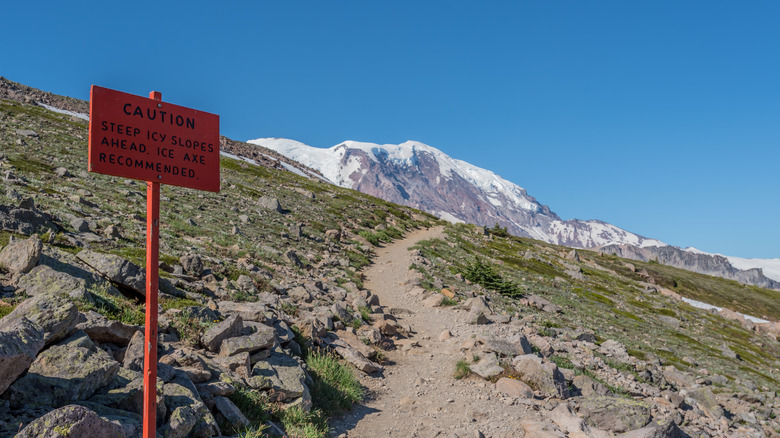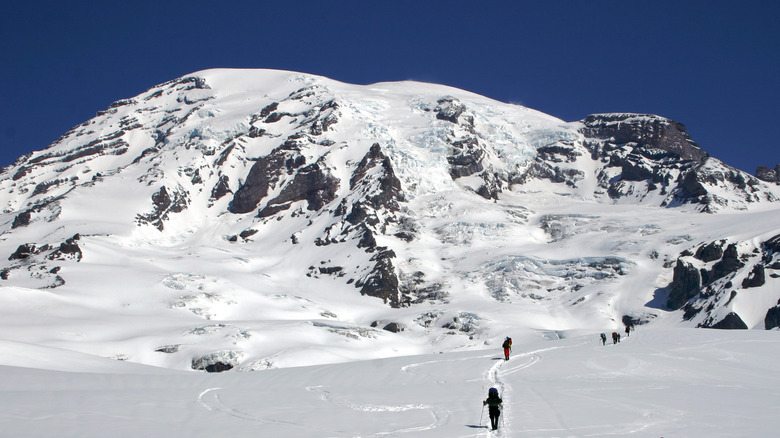Challenges of hiking to Camp Muir
The 9-mile round-trip hike typically takes between 8 and 10 hours, depending on your fitness level. While the length of the trail is manageable, the 4,788 feet of elevation gain is quite another story. As you ascend the steep trail in the thinning air, your legs start quaking. Each step seems to require more effort. You may also feel light-headed or even develop slight altitude sickness from the rapid change in elevation. Rubber legs and breathlessness combine with an unmistakable euphoria: You’ve now entered the place where hiking becomes mountaineering. Congratulations!
Aside from the trail’s steepness, the terrain itself is also pretty tough. The last 2.2 miles of the route is a snowfield that seems to go on forever, interrupted only by an occasional lonely rock island. Staying on the route is extremely important in this section to avoid falling into crevasses hiding under the snow . The mountain is also something of a magician when it comes to the weather. One minute, you’re peeling off your heavy jacket, and the next minute, a blizzard ensues. This volatility adds another layer of risk to the adventure, since whiteout conditions can make navigation even more difficult.
Training and preparation

Given these risks, it’s crucial to be prepared when tackling the hike to Camp Muir. In the months before the adventure, build your endurance through regular cardiovascular exercise and strength training. On the day of the hike, be sure to bring what are known as the 10 essentials: a map and any navigation devices, a headlamp and extra batteries, sun protection, a first aid kit, a knife, matches or a lighter, a bivy sack or some kind of shelter, food, water, and extra clothing. Check the weather forecast before and during your hike, and be prepared to turn back if conditions deteriorate.
Take navigation very seriously on this hike. Study the map of the route beforehand and bring one with you on your hike, along with the requisite navigational devices. Lastly, respect the mountain: its mercurial climate, vast snowfields, and ever-shifting glaciers. If you find yourself more awed than irked by the scale of these challenges, you just might be a mountaineer.

